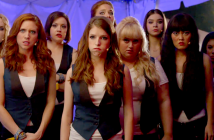Cast: Jae-yeong Jeong, Yu-mi Jeong, Sang Jung Kim
Director: Sang-soo Hong
Country: South Korea
Genre: Drama
Editor’s Notes: The following review is part of our coverage of the Locarno International Film Festival. For more information on the festival visit pardolive.ch and follow the Locarno International Film Festival on Twitter at @FilmFestLocarno.
“I guess people see things the same,” shrugs a character in the final scene of Our Sunhi. It would be hard for this to be less true of the latest film from the South Korean writer/director Hong Sang-soo, whose uncanny ability to incite giddy laughter and blank stares in equal measure attests the particularity of his comedy. His is a wit so dry it could parch an ocean, his fondness for deadpan delivery and takes that wind on for minutes uncut a recipe for his own peculiar brand of success. And what success it’s been, allowing him to replicate his style—even down to his narratives and characters, which rarely change much—from movie to movie.
The Hong hallmarks are all here: singular takes, punctuated by sharp zooms in and out; conversations that grow both funnier and more enlightening with time and alcohol; sly observations of the inter-gender power play; a certain sense of self-referentiality, foregrounded by the presence of filmmaker characters.
It’s an enlightening experience for the Hong sceptic to sit in a theatre crowded with fans: watched in isolation, his movies are far from forthcoming in their appeal to the outsider; boxed in by those who love his work, it’s much easier to understand what they see in him. It helps that Our Sunhi is among his funniest, its typically simplistic story that of the eponymous grad student out to earn a letter of recommendation from her former film professor to study abroad. Her conversations with him, and with two other men each involved in the world of movies, thrive on the witty little differences that set them, however slightly, apart.
The Hong hallmarks are all here: singular takes, punctuated by sharp zooms in and out; conversations that grow both funnier and more enlightening with time and alcohol; sly observations of the inter-gender power play; a certain sense of self-referentiality, foregrounded by the presence of filmmaker characters. Whether a fan of the style or not, it’s impossible not to admire the sort of quiet naturalism Hong’s manner of shooting teases forth. His scenes, often almost ten minutes long, unfold in unbroken takes as his cast rattle off line after line of carefully structured dialogue that somehow sounds as though they’ve just made it up on the spot. It takes incredibly hard work to sound so easy, yet that’s just how Hong’s movies play out: easily, like an evening out with good friends in a quiet bar.
Those kinds of evenings, of course, make up the bulk of Hong’s films, and Our Sunhi is no exception. The humour here emerges from the slow shifts in personality that emerge after one too many beers, as Sunhi’s various suitors reveal the twisted vision of the young woman they each maintain. While it’s a slight film—knowingly so, determinedly so—there’s weight to the way they try to shape her based on the idyll they envision, a light poking of fun at the way men think it’s okay to look at women. The comedy of the movie comes from exploiting this, from showing how—despite the disparate backgrounds and various distinguishing achievements they claim—these men are all the same, all looking down on Sunhi’s aspirations and seeing her only as an object of desire.
[Hong’s] scenes, often almost ten minutes long, unfold in unbroken takes as his cast rattle off line after line of carefully structured dialogue that somehow sounds as though they’ve just made it up on the spot. It takes incredibly hard work to sound so easy, yet that’s just how Hong’s movies play out: easily, like an evening out with good friends in a quiet bar.
There’s a certain similarity to this year’s I Catch a Terrible Cat that points—if not to Our Sunhi’s flaws—to where it might better achieve its aims. That movie managed the very sort of comedy for which Hong aims, while all the while tethering it to a dramatic exploration of the way these characters’ interactions shape them. But that’s not the movie Hong wants to make, and he can’t be begrudged his conviction. Our Sunhi’s humour is airy and wispy, light as the air and laidback as can be. Here and there it’s overwrought, but it is never not exactly what Hong wants it to be.
[notification type=”star”]68/100 ~ OKAY. Our Sunhi’s humour is airy and wispy, light as the air and laidback as can be. [/notification]




